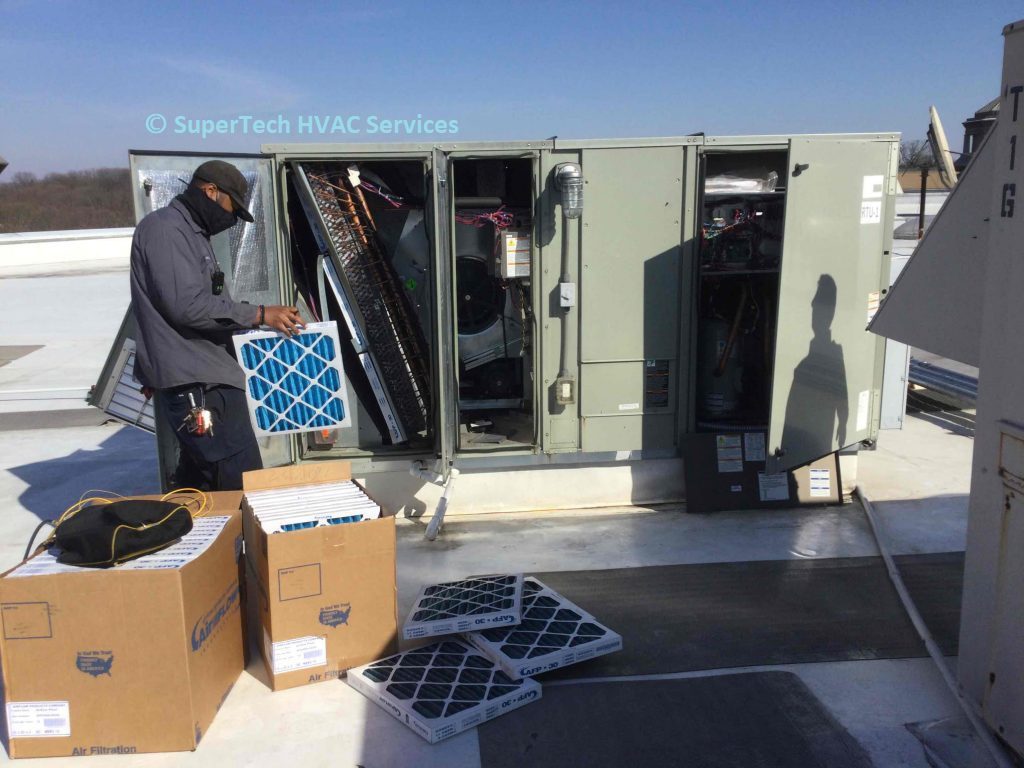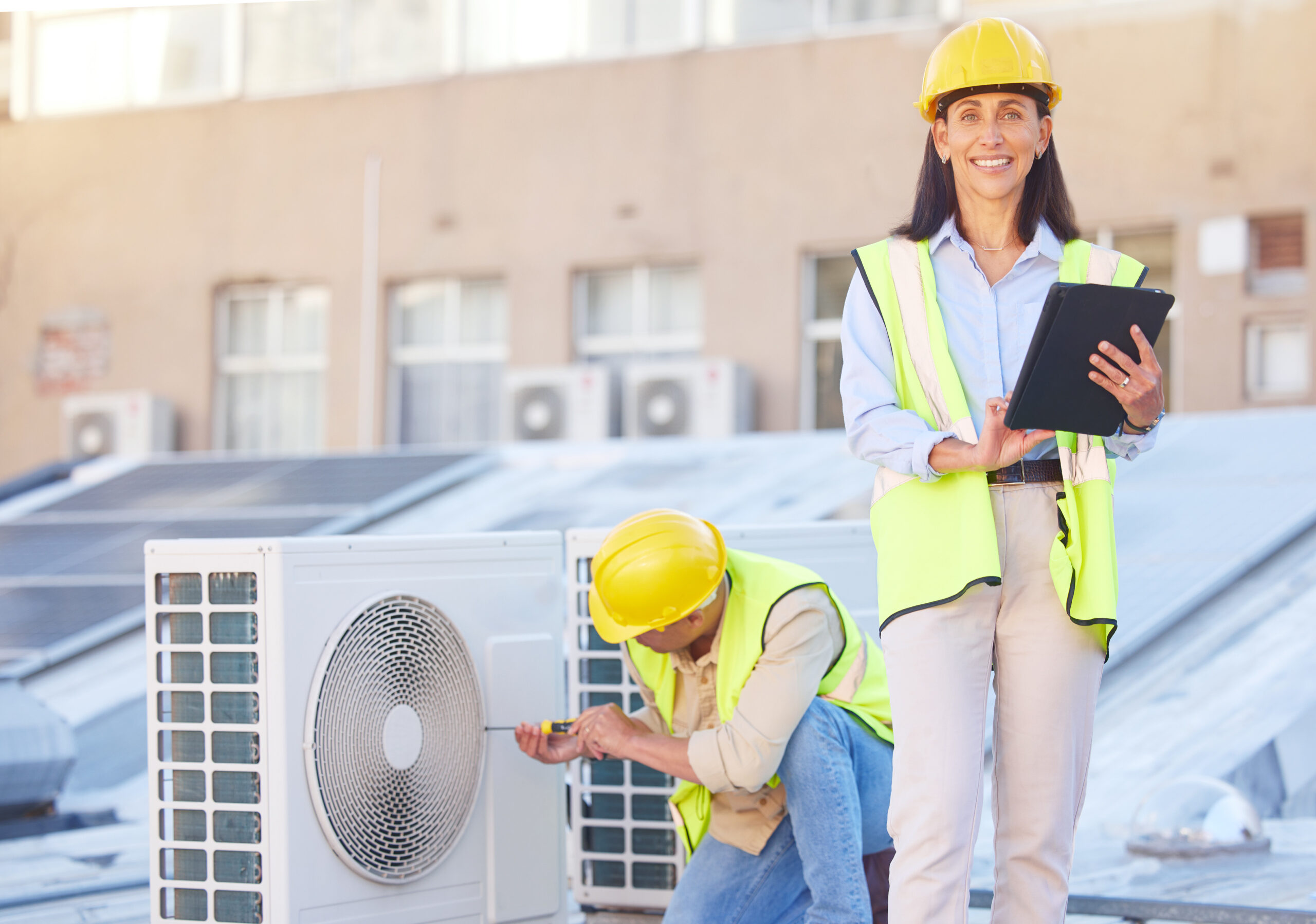Major Advantages of Annual heat pump service
Major Advantages of Annual heat pump service
Blog Article
How a Heat Pump and Heater Work Together to Optimize Your Home's Home heating Efficiency
Recognizing just how a warm pump and furnace interact is vital for homeowners seeking efficient heating solutions. Each system has its strengths, giving a well balanced strategy to home comfort. The heat pump stands out in moderate temperature levels, while the heating system delivers quick warmth during severe cold. This harmony not only reduces power expenses but additionally improves the life expectancy of both home appliances. What elements affect this partnership, and just how can home owners optimize their advantages?
Comprehending Warmth Pumps: How They Work
Numerous individuals might be strange with their inner operations, heat pumps play an essential role in modern-day heating systems. These devices operate by moving heat from one location to another, using the principles of thermodynamics. In colder months, a warm pump extracts warm from the outdoors air, ground, or water, and transfers it inside to warm up the home. Alternatively, during warmer months, it can turn around the process, working as an air conditioner by eliminating warmth from inside to the outside.Heat pumps include an evaporator, compressor, condenser, and growth shutoff. The cooling agent within the system soaks up warmth as it evaporates at reduced temperature levels and stress. The compressor then increases the stress and temperature level of the refrigerant, permitting it to release warmth as it condenses. This efficient procedure can considerably lower power intake compared to traditional home heating methods, making heatpump a sustainable choice for climate control in homes.
The Function of Heating Systems in Home Heating
Furnaces play a vital duty in home heating by supplying a trusted resource of heat throughout the colder months. They run by producing warmth via burning or electrical resistance, dispersing it throughout the home using air ducts or glowing systems. The efficiency of a furnace is commonly determined by its Yearly Gas Utilization Performance (AFUE) rating, which shows exactly how efficiently the device converts fuel into heat.Furnaces can utilize numerous power sources, including natural gas, gas, oil, or electrical power, permitting house owners to choose one of the most appropriate option for their demands. Unlike heatpump, which may battle in severe cold, heaters keep regular performance, ensuring that interior temperature levels remain comfortable no matter outdoor problems. Additionally, modern heaters often come equipped with innovative modern technology, such as variable-speed blowers and wise thermostats, improving their effectiveness and responsiveness. This versatility makes heating systems an essential element in comprehensive home heating strategies.

Advantages of Utilizing Both Systems Together
Integrating the strengths of both heating systems and heat pumps can result in a much more reliable and efficient home heating service. Utilizing both systems permits house owners to benefit from the warmth pump's power effectiveness throughout milder temperature levels while relying on the heating system for more extreme cold problems. This dual approach can greatly minimize power costs, as warmth pumps consume less power than traditional home heating techniques when temperatures are moderate.Additionally, making use of both systems together can enhance comfort levels in the home. Heatpump can supply regular, even heating, while heaters can promptly raise ambient temperatures when needed. The combination of both systems can extend the life expectancy of devices by reducing wear and tear on each device, as they share the workload. Ultimately, house owners can appreciate a well balanced, affordable heating service that adjusts effortlessly to differing weather, making sure a cozy and welcoming home throughout the wintertime months.
Just How Warm Pumps and Furnaces Enhance Each Other
They produce a complementary home heating system that makes the most of effectiveness and comfort when home owners incorporate heat pumps and heaters. Heatpump operate by transferring warm from the outdoors air or ground, making them extremely reliable in moderate climates. They succeed throughout milder temperatures, providing cost-efficient heating. Conversely, heaters create warmth via burning or electric resistance, providing solid, prompt warmth during severe chilly conditions.The combination of these 2 systems permits dynamic changes based on temperature level fluctuations. During warmer months or milder winter days, the warm pump can take the lead, conserving energy and decreasing prices. As temperatures drop, the heating system can flawlessly engage, making certain consistent heat throughout the home. This harmony not only maximizes energy usage but likewise enhances the life-span of both systems, as each system operates within its optimal efficiency array. Together, they produce a balanced setting that adjusts to varying environment needs.
Maximizing Efficiency: Tips for Homeowners
Homeowners can improve their home heating effectiveness through a number of sensible approaches. Developing a routine maintenance routine, integrating smart thermostat modern technology, and carrying out efficient insulation and securing options are vital steps. These procedures not published here just boost convenience yet additionally reduce energy expenses.
Normal Upkeep Set Up
To ensure optimal home heating performance, developing a normal maintenance timetable is vital for any kind of home. Homeowners must prioritize regular assessments of both warmth pumps and furnaces to determine peak performance. This includes transforming air filters each to 3 months, as clogged up filters can considerably minimize efficiency. Additionally, organizing expert upkeep a minimum of when a year enables service technicians to determine and attend to potential concerns prior to they escalate. House owners ought to additionally cleanse the warm pump's outdoor system to stop debris build-up that can hinder air flow. By adhering to a normal maintenance timetable, property owners not just improve their home heating systems' effectiveness however likewise extend their life-span, bring about greater convenience and reduced power costs throughout the cooler months.
Smart Thermostat Integration
Incorporating a clever thermostat right into a home heating unit can considerably improve power efficiency, particularly as it enables exact control over temperature settings. These tools can discover the home owner's timetable and choices, automatically changing the temperature to optimize comfort while lessening power usage. They can decrease home heating during times when the home is unoccupied, lowering unneeded intake. Several smart thermostats likewise supply real-time energy usage information, making it possible for homeowners to make educated choices concerning their heating routines. Furthermore, remote access using mobile phone applications enables users to readjust settings from anywhere, making certain the home is warm upon return. In general, clever thermostat integration not just enhances comfort but substantially adds to power financial savings and performance.
Insulation and Sealing Solutions
Smart thermostats play an important duty in energy effectiveness, yet their efficiency can be significantly enhanced by correct insulation and securing remedies. Home owners must focus on protecting wall surfaces, attic rooms, and floorings to decrease warm loss. High-quality insulation materials, such as spray foam or fiberglass, can substantially improve thermal resistance. Furthermore, securing gaps around windows, ducts, and doors stops cold air seepage and warmth retreat. Weatherstripping and caulking work approaches for dealing with these leaks - heat pump installation ooltewah tn. Normal assessments for air leaks, along with making use of blower door tests, can assist recognize problem locations. By investing in insulation and sealing, homeowners can maximize the efficiency of their heater, eventually causing minimized power consumption and lower energy expenses
Typical Misconceptions About Heat Pumps and Furnaces
What misunderstandings border warm pumps and heating systems? Numerous people erroneously believe that warmth pumps are inefficient in chillier climates. In truth, contemporary warm pumps are developed to operate efficiently also in reduced temperatures, offering check this site out reliable home heating throughout winter months. One more typical myth is that heaters are always much more efficient than heat pumps. Nonetheless, this relies on the specific power sources and performance scores of the systems concerned. Some may additionally think that making use of both systems at the same time is unnecessary, however in fact, this mix can optimize home heating effectiveness, especially throughout severe weather condition problems. In addition, individuals usually presume that heatpump call for constant maintenance, when in reality, they have similar upkeep needs to typical heating systems. By debunking these misconceptions, homeowners can make more informed choices regarding their home heating alternatives, inevitably leading to improved comfort and power effectiveness in their homes.
Upkeep Considerations for Combined Equipments

Frequently Asked Questions
Can Warm Pumps Work Properly in Very Cold Climates?
Warmth pumps can have a hard time in exceptionally cool climates because of minimized performance and heat removal constraints. Nevertheless, advancements in technology have resulted in versions designed for better performance in such conditions, improving their stability in harsh environments.
Just How Long Do Warm Pumps and Furnaces Commonly Last?
Heat pumps generally last 15 to twenty years, while heating systems have a life expectancy of 15 to three decades. Normal upkeep can expand their long life, making certain efficient operation and reducing the need for premature substitutes.

What Is the Average Price of Setting Up Both Systems?
The typical cost of setting up both a heat pump and a heater normally ranges between $5,000 to $10,000 - heat pump service. Aspects influencing this price consist of system size, installment intricacy, and local labor prices
Are There Tax Motivations for Utilizing Energy-Efficient Home Heating Solutions?
Many home owners ask about tax obligation motivations for energy-efficient home heating systems. Numerous government and state programs often offer credit scores or rebates, motivating the fostering of lasting modern technologies to lower energy consumption and advertise environmental obligation.
Just how Do I Pick the Right Dimension Heatpump and Heater?
Choosing the right size warm pump and heater includes computing the home's square video, considering insulation quality, and examining neighborhood environment. Consulting a specialist can assure Your Domain Name ideal system performance and power performance based on certain needs. heat pump service. Understanding how a heat pump and furnace work together is important for property owners seeking efficient heating options. In chillier months, a heat pump essences warmth from the outdoors air, ground, or water, and transfers it inside to heat the living space. When property owners incorporate heat pumps and heating systems, they develop a complementary heating system that makes best use of effectiveness and convenience. Heat pumps run by transferring warmth from the outdoors air or ground, making them extremely efficient in modest environments. Warm pumps can have a hard time in very cool environments due to minimized effectiveness and heat removal restrictions
Report this page